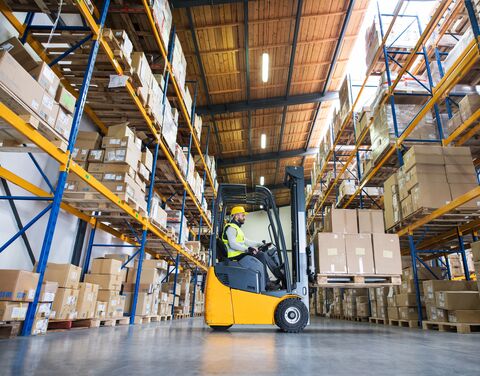Key points at a glance
- Comprehensive protection: Property insurance (or movables insurance) protects your company's physical assets and – like private household contents insurance – covers the costs of water or fire damage to your warehouse, IT infrastructure or factory, for example.
- Effective protection against unforeseen events: Property insurance offers comprehensive coverage for damage caused to property by fire, natural hazards, theft or water, for example as a result of fires, lightning strikes or flooding.
- Financial compensation for business interruption: Property insurance covers loss of earnings due to insured property damage (e.g. for renting additional space).
Sales advice: 052 269 21 70
Who needs AXA property insurance?
Property insurance (or movables insurance) is the business equivalent of household contents insurance and thus provides essential basic coverage for all SMEs. Whether it's a consulting firm's IT infrastructure and office equipment, a workshop's machinery and materials or an online shop's warehouse – fire or water damage, theft, and vandalism don't just cost the company a lot of money, they often prevent it from actually doing business at all.
Is property insurance mandatory?
Apart from the obligation to insure against fire and natural hazards in some cantons, property insurance is optional for companies throughout Switzerland.
What optional coverage is available?
AXA's movables insurance is never a standard solution. Instead, it offers coverage tailored specifically to your individual business model and insurable property. You can also add industry-specific options in line with your needs.
Frequently asked questions
What's the difference between property insurance and building insurance?
Property insurance protects all of your company's movable property. Built-in fixtures count as part of a building's installations and are covered under building insurance.
I'm a sole proprietor, and I work from home. Is private household contents insurance enough to cover my office and the stock I keep for my webshop?
Household contents insurance covers the policyholder's personal movable property. The tools you need for your business are covered up to a maximum of CHF 20,000, but inventories of goods intended for sale, semi-finished and finished products, and fixtures and fittings for business use are not.
We therefore recommend taking out separate property insurance (or movables insurance), either in the name of your company or in your own name as sole proprietor.
All of our logistics firm's vehicles were damaged in a fire, and we can no longer fulfill our orders. How quickly will movables insurance pay out?
When you need to make a claim, it's important to act fast, especially if you want to avoid any interruption to your business. Our "early payment after a loss event" service ensures that you receive part of the payout before we finish processing your claim.
What do "underinsurance" and "overinsurance" mean?
Both mean that the actual value of your inventory doesn't match the agreed sum insured. If you're underinsured, you don't have sufficient cover for your inventory, i.e. the amount paid out might not fully offset the loss incurred.
That can't happen if you're overinsured, which means that the sum insured is higher than the actual value of your inventory. This can serve as contingent coverage, for example in the event that your company's value concentration increases. However, it also makes the premium higher than it would be if the sum insured matched the actual value.
We therefore recommend making a record of all your property during a consultation and then updating the sum insured on a regular basis in subsequent years.







